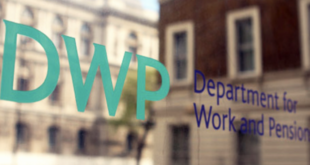Numerous strikes have taken place this year, as the Communication Workers’ Union (CWU) continue to be in dispute over pay, and cuts to workers’ terms and conditions.
Speaking about the decision to strike, CWU general secretary Dave Ward said: “Nobody takes the decision to strike lightly, but postal workers are being pushed to the brink. There can be no doubt that postal workers are completely united in their determination to secure the dignified, proper pay rise they deserve.
“We can’t keep on living in a country where bosses rake in billions in profit while their employees are forced to use food banks. When Royal Mail bosses are raking in £758 million in profit, and shareholders pocketing £400 million, our members won’t accept pleas of poverty from the company.”
Bosses have attempted to have discussions with union chiefs to call off their latest strike action and come to an agreement but stressed that the job-cut plans cannot be avoided.
Read More
Royal Mail chief executive Simon Thompson said that the planned redundancies are a “minimum” and more redundancies could be expected, if current strike action is extended.
The delivery giant is expected to fall to a £350 million operating loss for the year after being hit by industrial action, its parent group International Distributions Services (IDS) said.
Royal Mail made an operating profit of £758 million in 2021/22 and £726m the previous year.
Dave Ward, head of the CWU, condemned the move as a result of “gross mismanagement and a failed business agenda”.
The company said the redundancies are because of the “impact of industrial action, delays in delivering agreed productivity improvements, and lower parcel volumes”.
It is expected that 5,000-6,000 redundancies could be made by August.
Royal Mail employs around 140,000 people and has said this could amount to a roughly £450 million loss if customers move elsewhere following the initial strike action.
Who owns Royal Mail?
Royal Mail is a public service that was managed under a government department.
In 2011, the Government passed the Postal Services Act, which gave the green light for 90 per cent of Royal Mail to be privatised, whilst 10 per cent remained with Royal Mail employees.
In 2013, Royal Mail was floated on the London Stock Exchange for the first time in its 500-year history.
“The Government’s decision on the sale is practical, it is logical, it is a commercial decision designed to put Royal Mail’s future on a long-term sustainable business,” the then-business minister Vince Cable said.
The Government initially kept 30 per cent of Royal Mail’s shares. However in 2015, under Chancellor George Osbourne, these were sold off, putting the British institution into private hands.
Source link



